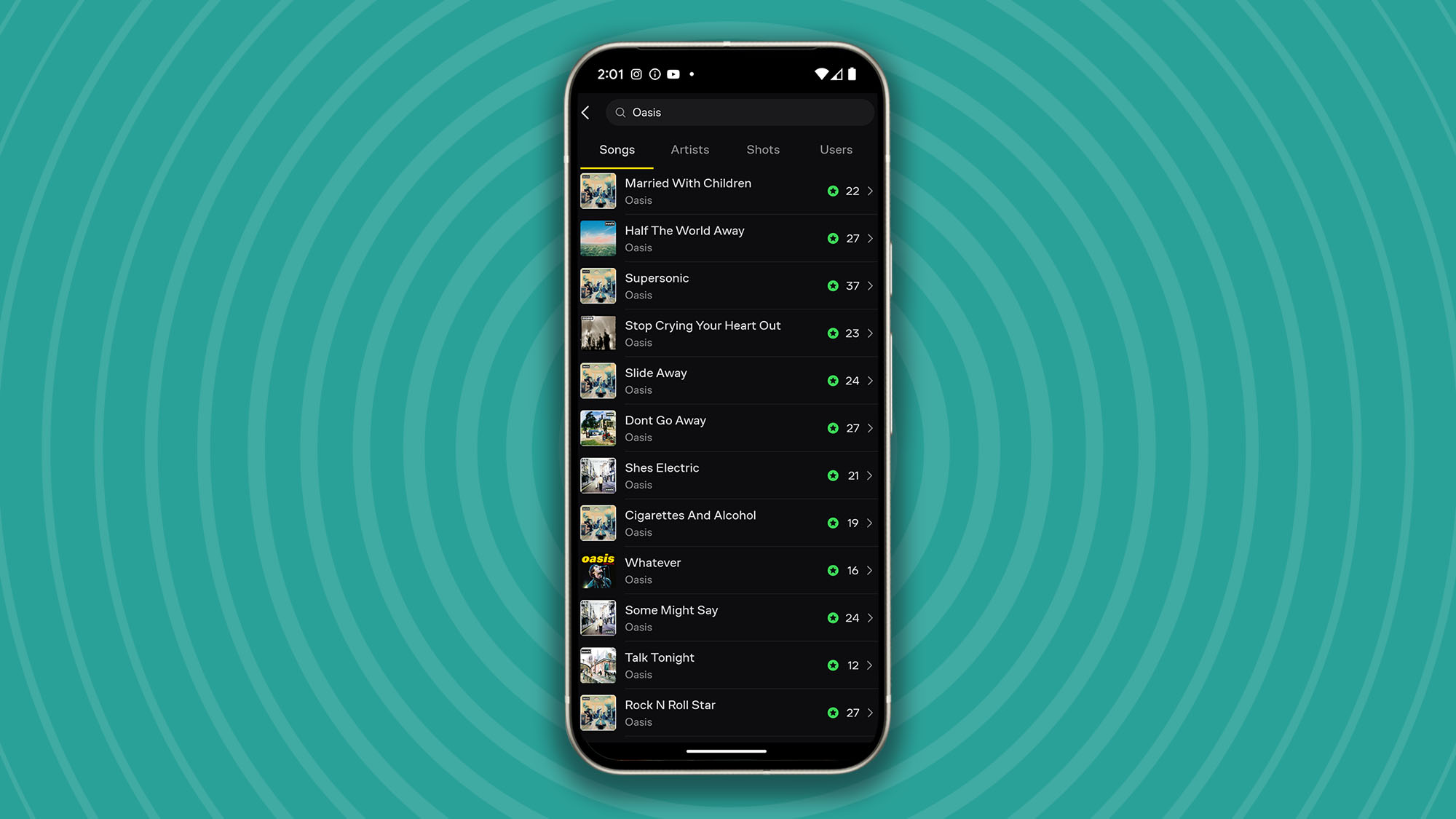If you’re a guitar player then you’ve probably heard about, or used, the Ultimate Guitar app for Android and iOS, for finding the chords and lyrics to thousands of popular songs. If you produce podcasts or record your own songs, then you’ve probably also heard of Audacity too, which we named the best open-source audio editor in our best audio editor of 2024 round up. Muse Group, the creator of both these apps, has been one of the early adopters of AI technology, and it’s using AI right now to turn people into better guitarists.
As a keen amateur guitarist I’ve often used the Ultimate Guitar website and app for its catalogue of tabs for popular songs. While not quite proper musical notation, tabs are one step up from simple lyrics and chords listings. Tabs show you where to put your fingers on the strings in a visual way, without having to know how to read music. So, if you want to know how to play Wonderwall, you search for it in Ultimate Guitar and you’ll find the lyrics and chords, or the tab versions people have submitted.
Usually it’s up to you to work the song out next, but Ultimate Guitar subscribers have access to an AI-powered Practice Mode which can detect if you’re hitting the right notes at the right time, and give you feedback. It can also adjust the scrolling speed of the musical notation on screen as you play, using AI to determine where you are in the song. We asked Martin Keary, VP of Product at Muse Group, about how the company was using AI to help people learn instruments and if its listening mode signaled the end for traditional guitar teachers.
“At Muse Group we’ve taken the approach that you can never really replace a guitar teacher with AI”, Martin told us, “but what you can do is get AI to help them teach. If you think about it, what a lot of a guitar teacher gives you as homework, it’s scales, it’s playing chords, all those things the AI can help you get better at by telling you if you’re doing it right. But so much of playing guitar is physical, it’s fixing your hand position, it’s fixing your posture as you play. You’ll always need a teacher for that.”
The AI tools in Ultimate Guitar require a subscription, which costs $39.99 / £39.99 / AU$59.99 a year. Can it, I wondered, teach a tone-deaf person to play guitar?
“Well, tone-deaf, I’m not so sure, but I’m going to say, yes!“ says Martin. “I think with the help of Practice Mode you get such direct feedback on what you’re playing that over time you’d have to improve”.

Watch On
‘Scuse me while I kiss the sky
AI has also been used in other Muse Group products, like the popular Audacity audio editor. Audacity is much loved, because it has always been a great free option for recording audio on your Mac or PC. There’s a plug-in called OpenVINO that will use AI to take any recording and separate the different instruments out into different tracks, which you can turn on or off. So, if you wanted to jam along to something on the drums you could remove the drum track from a song, then play along to it. The plug-in runs 100% on your local PC using your processor, rather than calling on servers from the cloud for help.
Something Martin is keen to stress is the strong ethical position Muse Group is taking with AI. “One thing we’ve done is to build our own AI technology ourselves, and make sure it’s only trained on music that has no copyright associated with it.”
As the recent RIAA lawsuit involving popular AI music creation software Suno has proved, we are in uncharted waters when it comes to the legality of AI and its use of copyrighted material for training purposes. ChatGPT is encountering similar issues.
Another thing AI does very well is imitate famous people in the form of chatbots. What does Martin think about, for example, the idea of getting guitar tips from an AI-generated Jimi Hendrix, or Kurt Cobain?
“This is something we’ve discussed a bit,” he says. “It’s certainly possible, but it would have to be done with the complete agreement from the individual artists, or their estates. I’d imagine it would be incredible if somebody like Jimi Hendrix could demonstrate how he’d approach playing a given piece of music you’re trying to learn. I should mention at this point that we are not actively developing this idea right now.“
If all the legal agreements were in place, I personally, would love a guitar lesson from AI Jimi Hendrix. I can just imagine him saying, “Well, you could play it like that man, but I think this way is much more beautiful, here let me show you how…”

